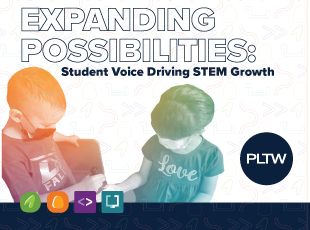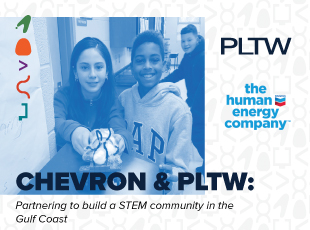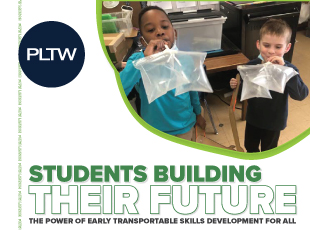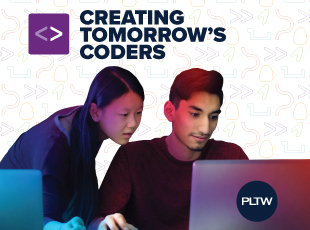
Our Philosophy for Education
We believe all students – beginning at a young age – need access to real-world, applied learning experiences that empower them to gain the skills they need to thrive in college, career, and beyond.
We believe teachers play an immeasurable role in empowering students, and our programs provide teachers with the support and resources they need to devote more time to inspiring students.
Get Started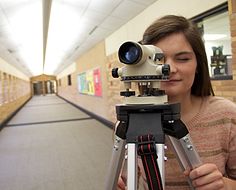


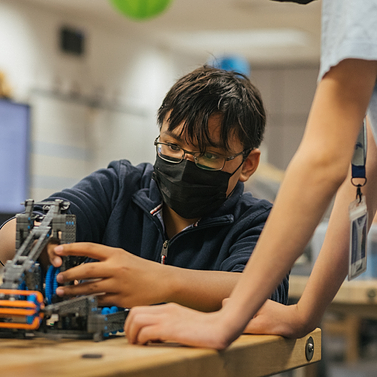
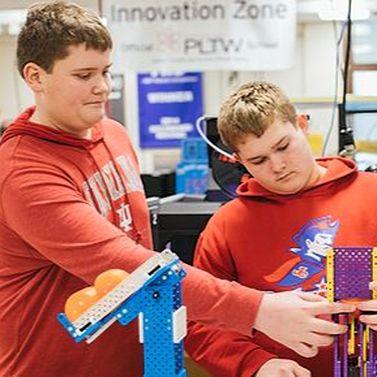
APB: The Building Blocks of PLTW’s Curriculum
Our activity-, project-, and problem-based (APB) instructional design centers on hands-on, real-world activities, projects, and problems that help students understand how the knowledge and skills they develop in the classroom may be applied in everyday life.
-
Scaffolded Student Learning
The APB approach scaffolds student learning through structured activities and projects that empower students to become independent in the classroom and help them build skill sets to apply to an open-ended design problem.
-
Students Lead Their Learning
This approach provides students with unique opportunities to work collaboratively, identify problems, apply what they know, persevere through challenges, find unique solutions, and lead their own learning.
-
Relevant Content, In-demand Knowledge, and Skills
Our curriculum is developed by a talented team, a majority of whom are former teachers. Our team develops a cohesive instructional path for students that is informed by their classroom experience, current research, collaboration with experts in academia and industry, and academic standards.
Our approach to standards connection is focused on student outcomes and flexibility.
Our programs are designed to empower students to thrive in an evolving world. As a part of this process, we take standards connections into account when developing and updating our curriculum.
We define connection as:
Students complete a designated task(s) that demonstrates outlined knowledge and/or skills of the specific standard or objective.
Our multidisciplinary programs align to a variety of standards and provide districts and schools with the flexibility to tailor programs to meet their specific state or local requirements as needed.
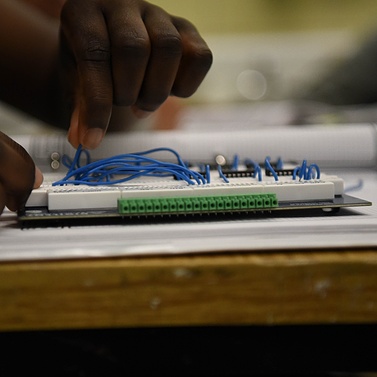
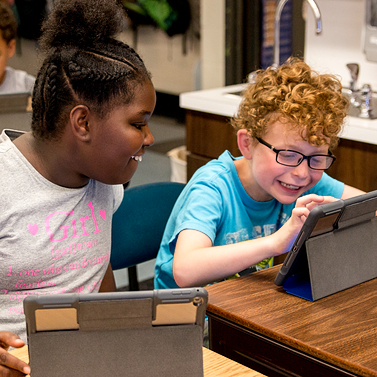
87%
of PLTW Gateway (6-8) students report their PLTW course made them more interested in STEM.
92%
of high school PLTW students report their PLTW course made them more interested in STEM.
70%
of students believe that PLTW classes help in other areas they want to study further.
Transportable and Technical Skills for Career Readiness
Problem solving, critical and creative thinking, collaboration, communication, and ethical reasoning and mindset are among the most desired skills in the workforce. Research has found them to be some of the most demanded and valued skills by employers.

Collaboration

Problem Solving

Ethical Reasoning

Communication

Critical and Creative Thinking
PreK-12 and Post-Secondary Outcomes
Research demonstrates that PLTW students outperform their peers in school, are better prepared for post-secondary studies, and are more likely to consider careers in STEM compared to their non-PLTW peers. Students find PLTW programs relevant, inspiring, engaging, and foundational to their future success.


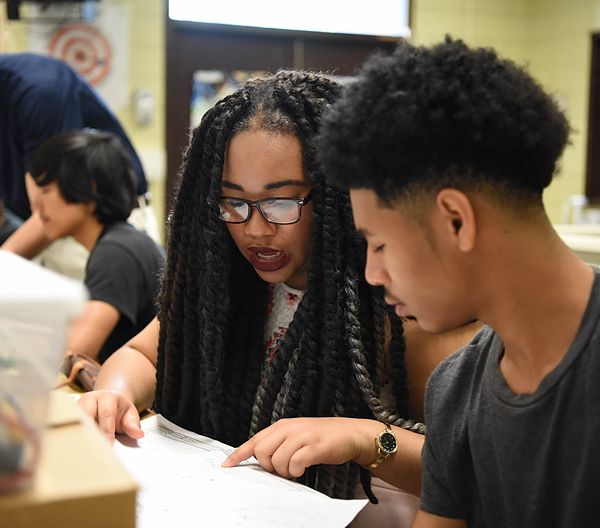
PLTW Students Outperform Non-PLTW Students
PLTW Gateway and high school students in Massachusetts significantly outperformed similar, non-PLTW students in math, ELA, and science. The impact of participating in PLTW was large enough to erase about 20% of the income-based test score gap in Massachusetts. The benefits of PLTW were as large, or larger, for low-income students, students with disabilities, and English learners.
PLTW Students Are…
-
More Likely to Graduate
Missouri students taking just one PLTW course had a high school graduation rate almost 7 percentage points higher than students who did not take any PLTW courses, even after accounting for student and school characteristics.
-
More Likely to Enroll in College
Missouri students taking two or more high school PLTW courses enrolled in postsecondary institutions at rates nearly 15% more than those not taking PLTW courses, after accounting for the different characteristics of PLTW and non-PLTW students.
-
More Likely to Enter STEM Majors
Missouri high school students who took at least two PLTW courses declared STEM majors in college at rates nearly 13% more than students who did not participate in PLTW.
-
More Likely to Earn More
PLTW graduates in Texas who immediately entered the workforce after high school earned almost 14% more--over $3,000--than their similar, non-PLTW peers.
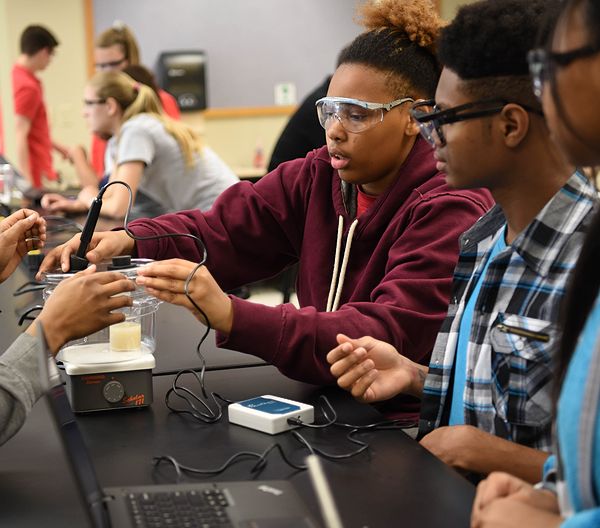
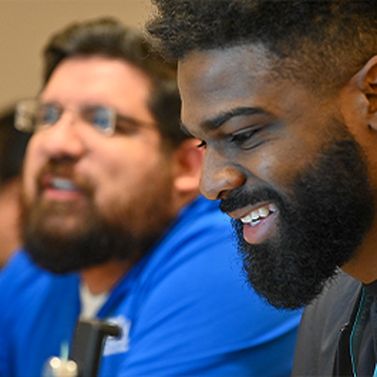
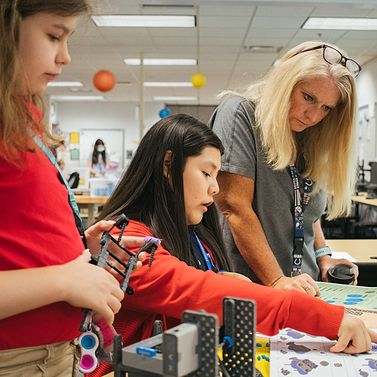
PLTW teachers report increased efficacy & satisfaction with teaching.
"As a teacher, I have been totally reinvigorated by this curriculum. One of the best things for me is seeing just how much kids can do when you challenge them to do it. I have no doubt that the kids who go through this program are better off when they get to college and when they get to jobs because they know how to do things for themselves. They have been challenged - they know how to step up and to take different pieces and parts, put them together, and make something new."
PLTW is committed to providing a transformative learning experience for students and teachers with lasting impacts from preschool through graduation and beyond.
66%
Increase in teacher satisfaction with teaching since starting PLTW.
68%
Increase in teacher efficacy with teaching since starting PLTW.
[1] One8 Foundation & Papay, J. (2019). The impact of applied learning on student achievement and engagement: First year results of scaling Project Lead The Way in Massachusetts. Publication by PLTW.
Teacher Efficacy and Skill Development in the Field
PLTW’s professional development prepares teachers to infuse a new way of teaching into the classroom and is also known to change the way educators teach non-PLTW classes.
Through our programs, we provide the community, support, and resources teachers need to devote more time to inspiring students. In fact, 92 percent of PLTW teachers say they are confident to return to their classrooms and teach their PLTW course after participating in our professional development program, PLTW Core Training.
